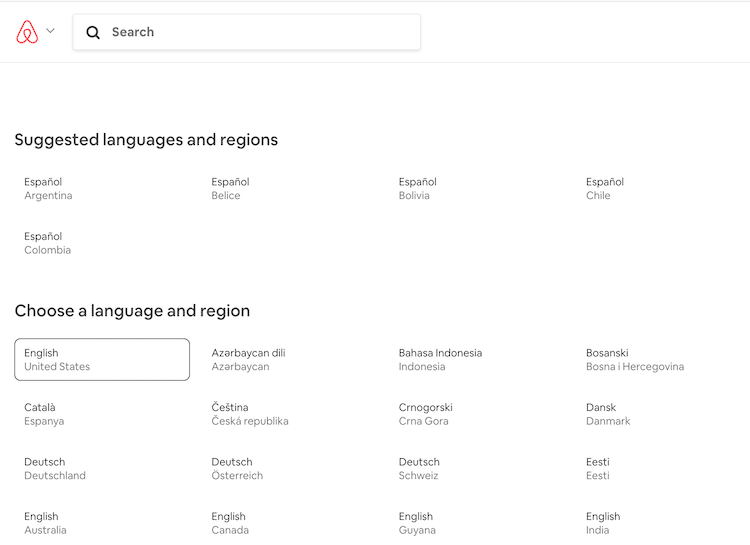As I’ve documented in many editions of the Web Globalization Report Card, companies tend to add languages in fits and starts. The overall average is about one additional language per year.
But some companies expand their global reach in sprints. Facebook went from 1 to 100 languages in under two years.
And, last week, Airbnb doubled its language total.

According to the company:
Now supporting 62 languages around the world, the Airbnb platform is accessible to more than 4 billion native speakers. With these new languages, we’re working to bring economic opportunity to even more hosts, and making it easier for more guests to experience travel that is local, authentic and unique.
Here are the 31 new languages now available on Airbnb:
- Albanian (Albania)
- Armenian (Armenia)
- Azeri (Azerbaijan)
- Bosnian (Bosnia and Herzegovina)
- Bulgaria (Bulgarian)
- Traditional Chinese (Hong Kong SAR)
- English (Australian)
- English (Canada)
- English (United Kingdom)
- Estonian (Estonia)
- French (Canada)
- Georgian (Georgia)
- Hindi (India)
- Irish (Ireland)
- Latvian (Latvia)
- Lithuanian (Lithuania)
- Macedonian (North Macedonia)
- Maltese (Malta)
- Montenegrin (Montenegro)
- Romanian (Romania)
- Serbian (Serbia)
- Slovak (Slovakia)
- Slovenian (Slovenia)
- Spanish (Argentina)
- Spanish (Latin America)
- Swahili (Africa)
- Tagalog (the Philippines)
- Ukrainian (Ukraine)
- Vietnamese (Vietnam)
- Xhosa (South Africa)
- Zulu (South Africa)
I appreciated that Airbnb posted this announcement in every supported language.
I suspect Airbnb will see its ranking improve in the 2020 Report Card.
